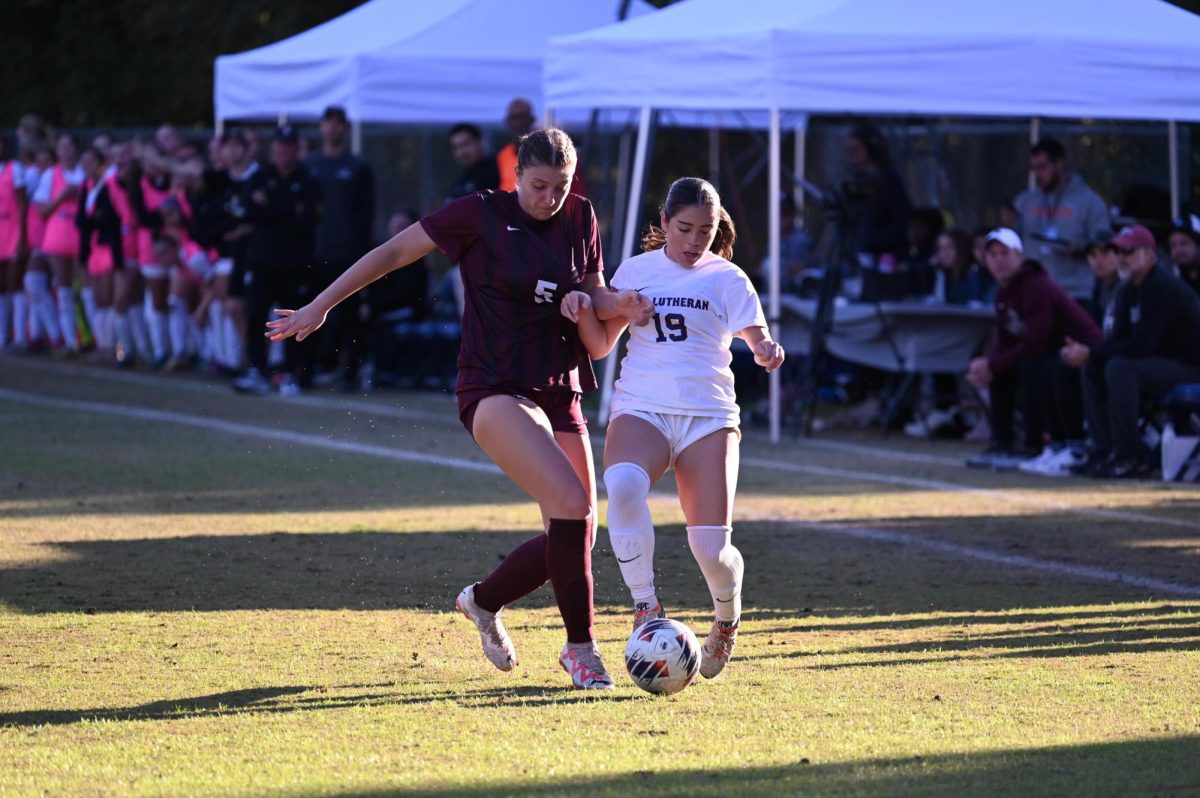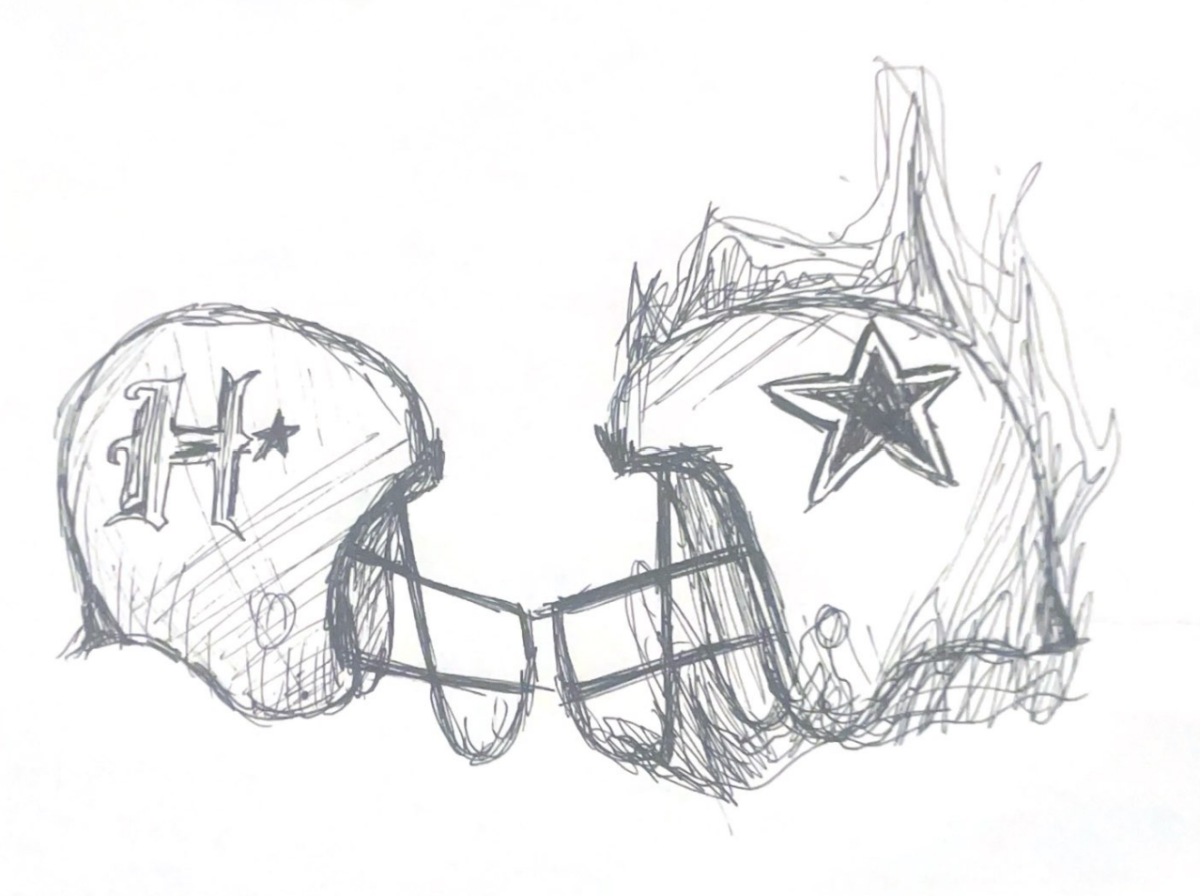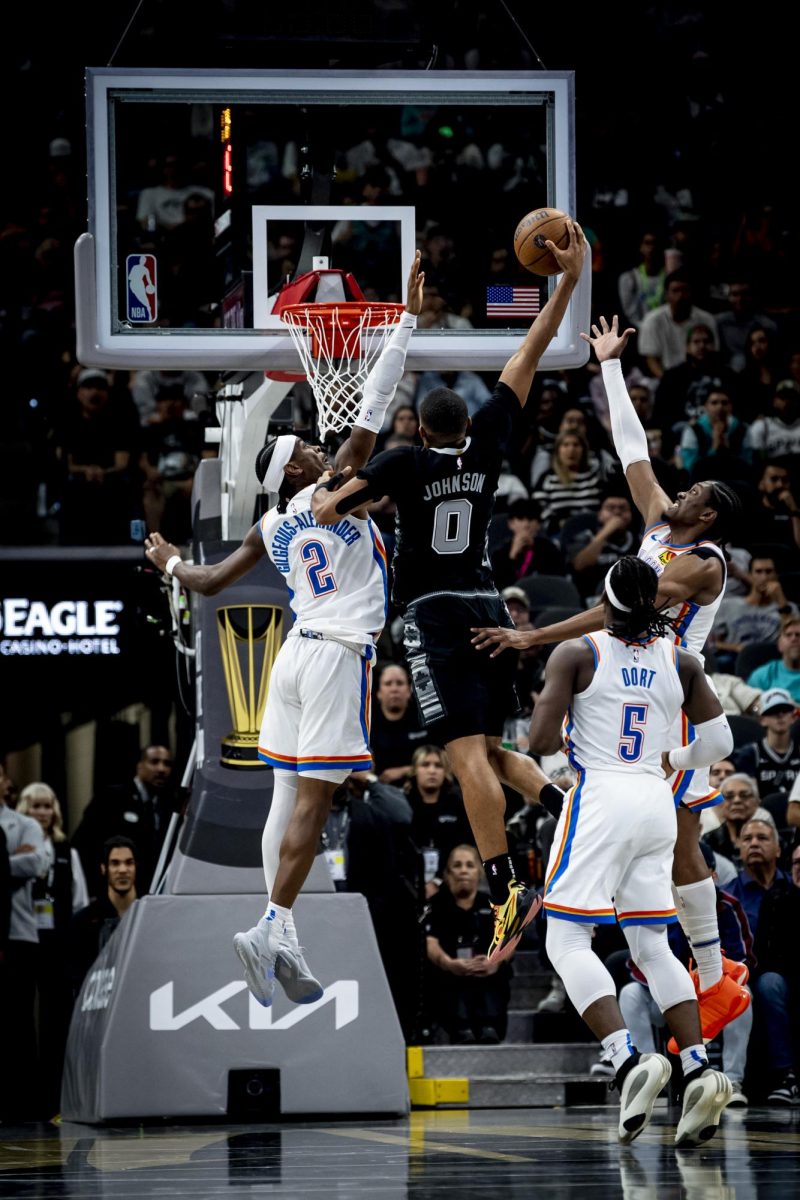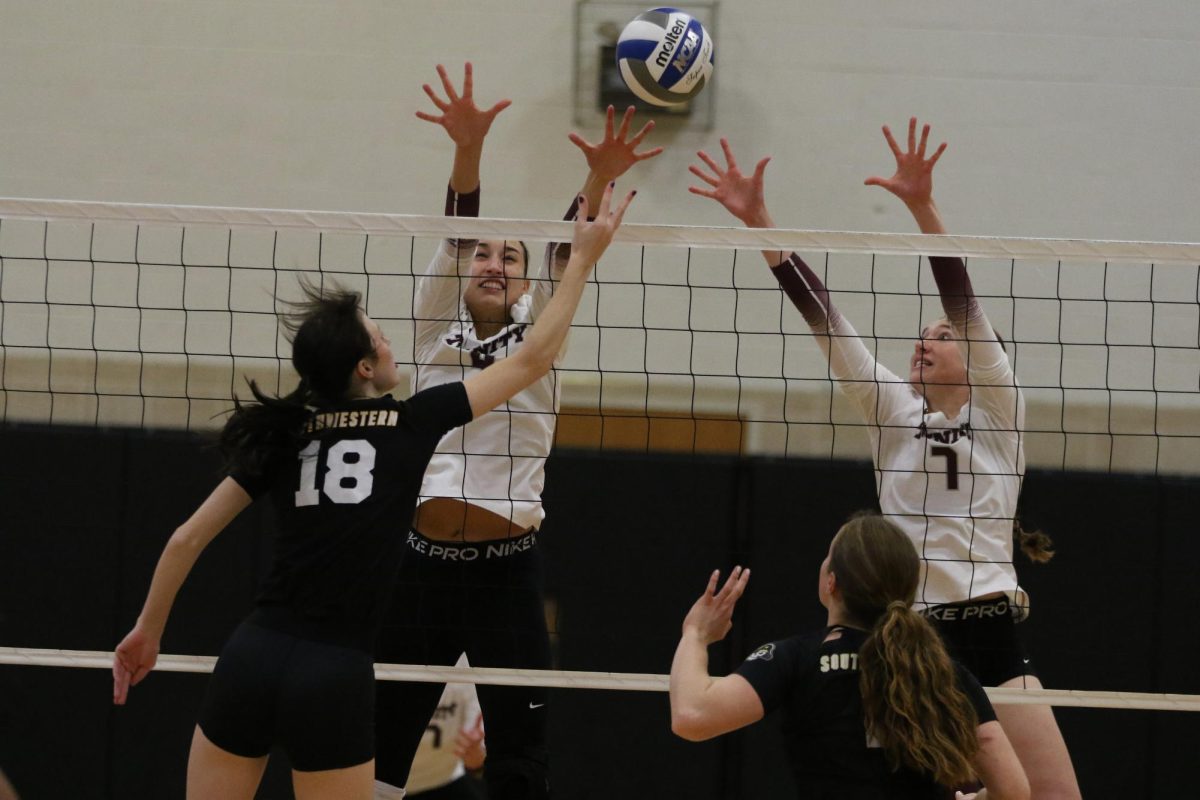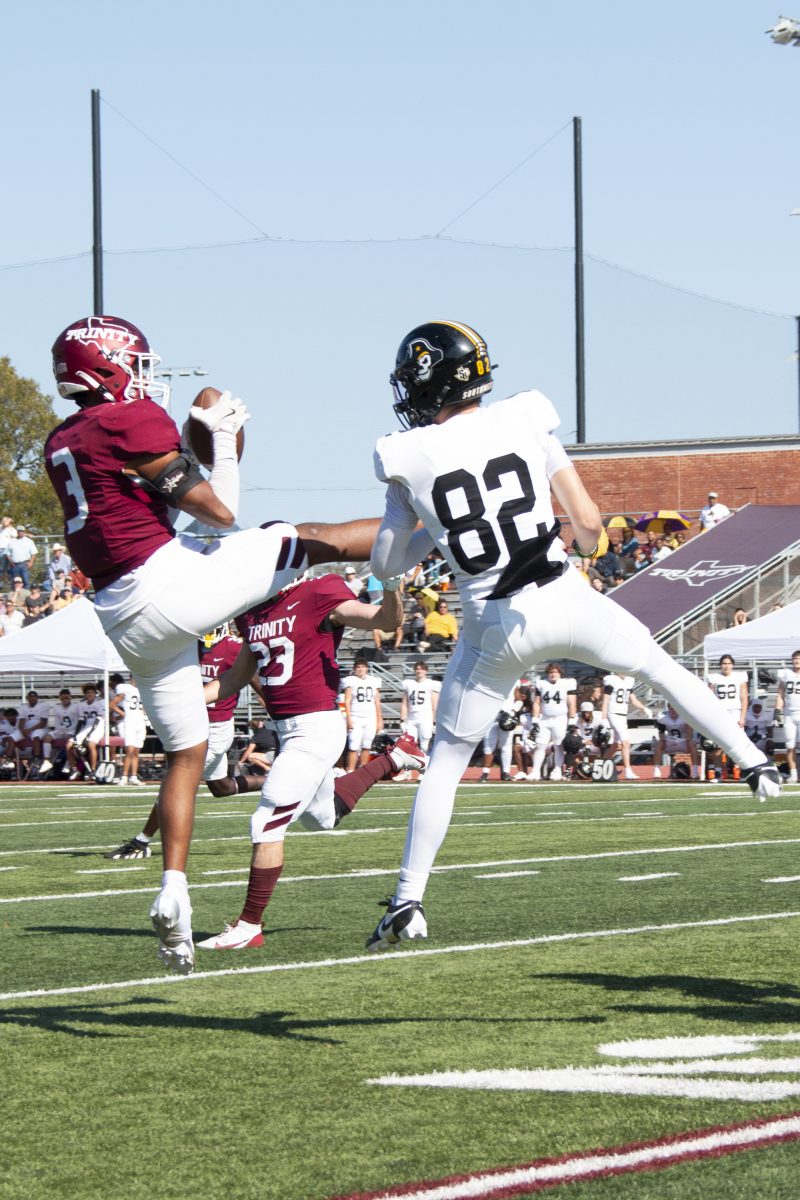University athletes, even at Trinity, face injuries across all sports from soccer and volleyball to softball and football.
Injuries range from minor, like being out for only a couple days, to major, when an athlete is out for an entire season. Season-ending injuries are heartbreaking for the athlete and their team and can be very hard to come back from.
Mattea Zeinstra, a first-year setter from California, is redshirting this season due to a past injury, but is still fully committed to the volleyball team.
She injured herself during a high school match tearing her meniscus; consequently, she had to have surgery followed by a six month recovery.
The only person that has seen her play is the head volleyball coach, Julie Jenkins, who has complete confidence that she will come back and make an impact on the team this spring and next fall.
Mattea speaks on her injury and how it has affected her life:
“This injury has made a huge impact on my life,” Zeinstra said. “Not being able to play the sport I love for six months is extremely difficult and has taught me how to be very patient with waiting.”
Even though Mattea has not officially been announced as a Trinity volleyball athlete by the NCAA, she is still a huge part of the Trinity Volleyball team.
Shannon Courtney, a senior captain, said that “despite her injury, Mattea has brought a lot of enthusiasm to the team. She comes to practice every day with a positive attitude and is a great team player.”
Mattea plans on waiting patiently to overcome her situation and coming out strong when the Tigers start their spring season.
Since the fall sports have been underway, there have been multiple knee injuries. Additionally, two athletes have torn their ACLs.
One of these tragic accidents happened to Nicole Gardini, a junior defender for the Trinity women’s soccer team.
This was her second ACL tear, so Gardini understands the time and commitment it will take in order to come back from such a devastating injury.
The injury happened during preseason while she was running down the sideline, catching her legs with another player and twisting her knee, ultimately tearing her ACL and meniscus.
She will be out for six to eight months, while also taking a couple more months to reach her full potential.
“My life has been turned upside down,” Gardini said. “All summer I had an image of how this fall semester and season would play out for me, and this was the last thing on my mind.”
Gardini was looking forward to playing a crucial role on the field this year “” filling a leadership position once held by senior defenders last season.
Although she is unable to make a difference on the field, she is determined to still be a role model for the team.
Gardini said, “Even now with my injury I am still fully involved as a supportive teammate and hopefully as a mentor to the underclassmen.”
She is not the only women’s soccer player to face this injury: Carley Kocel, a new alumni, faced an ongoing back injury that prevented her from playing her junior season as well.
“She understands what it’s like to be at such a prime time in your college athletic career and have to sit on the sidelines “” not by choice,” Gardini said. “She was always extremely supportive and brought a positive attitude to the environment, and for that reason I look up to her.”
Gardini is determined to keep in mind the blessings in her life and stay diligent with her rehab in order to keep a positive attitude to support her teammates as they continue with their season.
Mason Blaschke, senior starting quarterback for Trinity, tore his ACL recently as well, knocking him out for the season.
“My injury happened during a pass play when I stepped up to avoid rushing defenders and two of their guys tackled me from the side and my leg was unfortunately caught underneath,” Blaschke said.
Coming back as a fifth-year senior to play and having a season-ending injury is a devastating situation, especially after his prior experience of having dislocated his wrist two years ago on the same field.
Blaschke has confidence that his team will continue to be successful this season and hopes that they will give every game their best, knowing that unfortunately this can happen to anyone.
“We have a lot of playmakers who will make plays throughout the season,” Blaschke said. “Austin Grauer is more than ready and capable of doing a great in leading the team from the quarterback position.”
Grauer started off strong at their first home game last Saturday taking the team to a 35-6 lead over Willamette.
Having had a season-ending injury before, Blaschke knows how hard it is to sit back and watch from the sidelines, but this one has hit harder than ever as it was his last season to ever play football.
“To truly overcome this situation I am relying primarily on the Man upstairs,” Blaschke, “I’ve been blessed with family and friends constantly praying for me and trying to keep my spirits up.”
For many athletes, playing college sports is a dream come true. To have that dream interrupted or even ended can be a really painful, disheartening experience. However, no matter the trials or tribulations, it’s the relationships with their trainers, teammates and coaches that matter more than anything else, and it is these things that will help injured athletes to keep their spirits up when things don’t go as planned.

